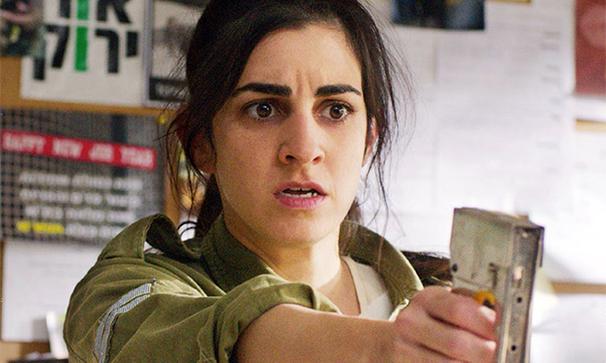
When a country is at war it needs the support and involvement of all its citizens, from the soldiers on the front lines all the way to the people who handle the legal paperwork. This clerical side of the military is the setting of writer/director Talya Lavie’s debut feature “Zero Motivation,” winner of the Best Narrative Feature award at this year’s Tribeca Film Festival.
Shown in Hebrew with English subtitles, the film follows a unit of young girls who work in the human resources office of a remote desert base as they deal with boredom, violence and their own personal and emotional issues. The film narrows in on the saga of best friends Zohar (Dana Ivgy) and Daffi (Nelly Tagar) as their friendship fluctuates under the strict but caring rule of their unit commander Rama (Shani Klein).
Amid military strategizing, Lavie plants us firmly in the world of teenage girls, showing events from their hormonal and self-centered perspectives. The first scene of the film shows a conflict between Zohar and other recruits, which starts when she attempts to save Daffi a seat on the bus to the base for another round of service. Moments like these show viewers the small scale of these girls’ priorities despite the turmoil going on around them.
The film also tackles gender issues in the military, as some of the girls are abused by male soldiers. Rama struggles to be seen as an equal to her male counterparts at meetings, where she and her friends are responsible for providing coffee to a room full of officers who ogle them as they are served.
Essentially a dark office comedy disguised as a film about soldiers, “Zero Motivation” is wickedly funny and terrifying in equal measure. This is largely due to a colorful and well-developed cast of supporting characters, who all have their own internal demons and opinions, filling the fictional world with authenticity and pathos.
The script is filled with laughs and heartbreak, and the realistic central characters are committed to every complex beat. Especially engaging is the shifting power dynamic between Daffi and Zohar, which culminates in an altercation that encapsulates Lavie’s film — two girls having a stapler fight in an office is a funny image, until the audeince sees staples draw blood.
Lavie herself worked as a secretary in a similar office during her military service in Israel and, while most of the audience will never know what that is like, Lavie draws viewers into her genuine and unique portrait of war, adolescence and friendship.
“Zero Motivation” marks the arrival of a fresh female cinematic voice on the international front — one that should be sought out by all viewers. The film does not yet have a distributor but, with any luck, it soon will.
A version of this article appeared in the Wednesday, April 30 print edition. Ife Olujobi is film editor. Email her at [email protected].
For more WSN coverage of the 2014 Tribeca Film Festival, visit wsnhighlighter.com.
























































































































































